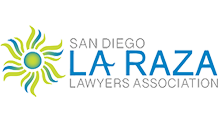There are two types of MCLE credit: participatory and self-study.
Participatory credit
Participatory credit is earned through activities where the provider verifies attendance, such as:
- In-person courses
- Electronic/online activities with interaction
The provider can verify your participatory credit if:
- You sign in at the time of the activity (electronic sign-in is acceptable);
- The provider keeps record of participants who signed in; or
- The provider issues a Certificate of Attendance to participants.
Additionally, a licensee may also claim participatory MCLE credit as follows:
- For Mock Trial, Moot Court, and Other Competition Activity
- A licensee may claim up to two hours of participatory MCLE credit for serving as an attorney coach, scorer, or presiding judge for mock trials, moot court arguments, negotiation competitions, arbitration competitions, and mediation competitions involving substantive and procedural law at the middle, high school, college, graduate, and law school levels. State Bar Rule 2.84 sets forth additional requirements.
- For speaking as a principal speaker, panelist, or moderator at an approved MCLE activity. The speaker credit depends on the level of participation and whether the speaker elects to claim speaking time for one or more presentations. State Bar Rule 2.81 sets forth additional requirements.
- For teaching a law course, State Bar Rule 2.82 sets forth additional requirements.
Self-study credit
Self-study credit is obtained through:
- Activities for which attendance is not verified by a provider and the MCLE activities were prepared within the preceding five years;
- Take an open or closed-book self-test and submit it to a provider who returns it with a grade and expectations of correct answers; or
- Author or co-author written materials that
- Have contributed to the licensee’s legal education;
- Have been published or accepted for publication; and
- Were not prepared in the ordinary course of employment or in connection with an oral presentation at an approved MCLE activity.
Under the requirements, at least half of the 25 MCLE hours reported must be “participatory”. No more than 12.5 credit hours reported may be “self-study”. Please note that, courses taken online or with the help of media such as CDs and tapes may also count towards participatory credit if the provider has been approved for it. Make sure to contact the provider beforehand to verify if participatory credit has been approved and if the information is still current.
Credit request
Attorneys are responsible for making sure the MCLE hours they report are approved for credit by the State Bar or by another U.S. state or country that the bar has designated as an “approved jurisdiction.” See the list of approved jurisdictions.
Attorneys seeking approval for attendance at an education activity not yet approved by the State Bar, including activities in unapproved jurisdictions, can do so by completing and filing an MCLE Credit Request Form. Attorneys may apply for MCLE credit for activities directly relevant to their practice without prior approval, provided the activity substantially meets State Bar standards. More on standards for MCLE activity approval.
Nonapproved activities
The State Bar does not approve the following activities:
- Jury duty
- Grading the California Bar Examination
- Preparing for or taking a bar exam for admission in any jurisdiction or the Multistate Professional Responsibility Examination (State Bar Rule 2.87)
- Acting as a judge pro tempore, mediator, arbitrator or settlement judge
- Acting as a supervising attorney in the State Bar Law Office Study Program (pursuant to Business and Professions Code section 6060, subdivision (e)(3)(ii))
- Supervising, reviewing or evaluating the legal work of associates and other less experienced attorneys on a one-on-one basis (for example, a mentor program)
- Performing educational activities on legal topics presented to nonlawyers, such as:
- Taking correspondence courses
- Taking general computer, acting, and writing courses that are not specifically for legal applications
- Teaching business law at a community college or a university
- Reading (advance sheets, books or articles)


